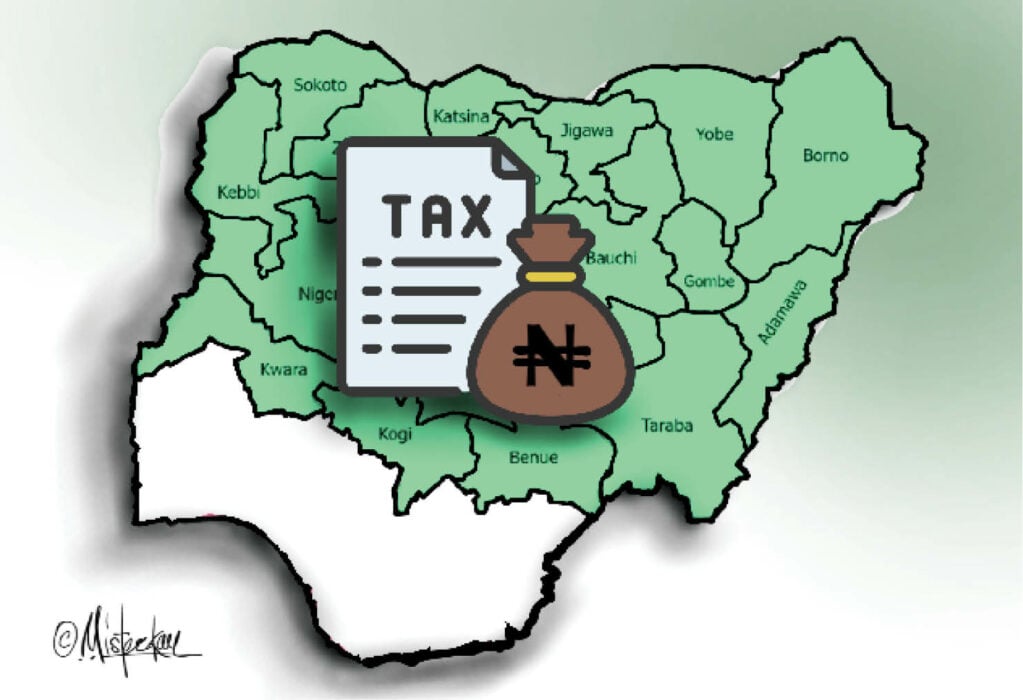Copyright leadership

As this article reaches your hands, the city of Kano is alive with conversation. Across the halls of the Northern Revenue Conference, policymakers, economists, administrators, and scholars are engaged in a long-overdue dialogue about money – not the hush-hush kind whispered between contractors and politicians, but the kind that keeps hospitals open, schools running, and governments standing. For three days, from November 4 to 6, 2025, northern Nigeria gathers to examine the new tax laws, their implications, and, more importantly, the readiness of our states to face a fiscal future that can no longer be postponed. Let me begin with gratitude – to the Kano State Government and the leadership of the Kano State Internal Revenue Service (KIRS) – for convening what is easily one of the most significant fiscal dialogues in the region’s history. It takes courage and foresight to host such a gathering in times like these, when politics prefers comfort over candour. But truth, like tax, cannot be deferred forever. A Region of Paradox Northern Nigeria’s fiscal story reads like an epic of contradictions. The region is rich in land, people, and history, yet poor in revenue, planning, and foresight. Its markets hum with commerce, its towns swell with youthful energy, and its soil feeds the nation, but its treasuries often depend on Abuja’s monthly benevolence. It is a paradox that should disturb any serious policymaker. The numbers tell the story more bluntly than words can. Despite holding over half of Nigeria’s population and controlling vast agricultural and mineral potential, the North contributes less than a quarter of the country’s internally generated revenue. It is not that the people do not work, it is that the governments have not learned how to translate economic activity into fiscal stability. The problem is structural, but it is also philosophical. Too many state governments have treated taxation as an emergency measure, not a developmental instrument. Revenue, in their view, is what keeps the engine running, not what determines where the vehicle should go. Yet taxation, properly understood, is not just about money – it is about the direction of the economy. It shapes behavior, influences investment, and signals the priorities of a state. A tax regime that rewards production and penalizes speculation can transform an economy more effectively than a dozen political declarations. Readiness and Reality Across northern states, readiness for the new tax laws remains uneven. Many States Internal Revenue Services (SIRS) still operate within the suffocating embrace of the civil service, where promotion is determined by tenure, not performance, and innovation is often mistaken for insubordination. Their systems are largely manual, their databases inconsistent, and their staff overworked yet undertrained. The new tax laws – the National Tax Act (NTA), and the National Tax Administration Act (NTAA) – require states to be agile, data-driven, and compliant. Yet agility is impossible when bureaucracy moves at the pace of paper. Reform, therefore, must begin not with speeches but with structure. Revenue services must gain autonomy – financial, administrative, and operational. Their leaders must be accountable for results, not rhetoric. Tax officers should be trained not merely to collect but to communicate, not just to audit but to analyse. A tax system that does not understand its taxpayers is like a farmer who sows without knowing his soil. Technology, too, must become more than a buzzword. Data integration across ministries, banks, and agencies can uncover hidden assets and unlock new compliance pathways. But digitalization alone is not transformation – it must be paired with transparency. When systems go digital but decisions remain opaque, corruption simply migrates from cash to code. The Case for Non-Tax Revenue Yet even as we refine tax collection, we must confront a larger oversight: northern Nigeria has paid scandalously little attention to non-tax revenue. The obsession with tax often blinds policymakers to the vast universe of fees, licenses, royalties, penalties, rents, and dividends that governments can – and should – collect efficiently. Take land administration, for instance. In most northern states, land transactions are still largely informal, depriving governments of billions in fees and stamp duties. Quarrying, transportation, tourism, public utilities – these sectors brim with non-tax potential. If each state optimized just five major non-tax streams, it could increase its total IGR by as much as 40% without raising a single tax rate. Non-tax revenue has another advantage – it is less politically sensitive. People resent taxes but rarely object to paying for services they can see or use. By professionalizing the collection of such revenues – digitizing permits, enforcing service charges, and reducing leakages – states can build sustainable income without triggering resistance. In essence, non-tax revenue is the low-hanging fruit of fiscal reform. Ignoring it is not prudence; it is negligence. The Politics of Reform Let’s be honest: tax reform in the North is not only a technical problem; it is a political one. The political economy of the region thrives on patronage, not productivity. Many elites benefit from a fragmented and opaque revenue system. Reform threatens their convenience. But as oil dependency fades and federal allocations shrink, that convenience will soon become a liability. States must therefore treat revenue reform not as a bureaucratic exercise but as a survival strategy. Every naira collected legitimately is a vote for fiscal sovereignty. Every loophole closed is an act of courage. Reform will demand that governors resist the temptation to use tax agencies as political weapons or employment bureaus. It will require that taxpayers see enforcement not as punishment but as fairness. And it will mean acknowledging that tax is not theft when governance is transparent. Toward a Regional Readiness Framework Tomorrow, at this very conference, I will join a panel titled “Consolidation of State Reports into a Regional Readiness Framework for Northern States.” The goal is simple: to harmonize efforts across states and craft a collective roadmap that reflects shared realities. Because while taxation is legislated nationally, readiness is local, and reform, ultimately, is regional. The North must act as one fiscal ecosystem. We trade together, migrate together, and face the same economic constraints. Fragmented tax policies create confusion, duplication, and distrust. A harmonized approach – shared data standards, compatible systems, and cooperative audits – would strengthen not only revenue generation but also investor confidence. If Kano digitizes property records but Jigawa does not, the border becomes a haven for evasion. If Bauchi enforces compliance but Gombe looks away, tax avoidance becomes a regional sport. Cooperation is no longer a luxury; it is an imperative. What Comes After the Conference Conferences inspire; execution sustains. The conversations in Kano will matter only if they mature into measurable action — smarter systems, skilled officers, informed taxpayers, and transparent spending. The true legacy of these three days will not be in the eloquence of the communique but in the evidence of change that follows. Each state must return home not with speeches, but with strategies. Fund automation, not excuses. Pay revenue officers decently, not sparingly. Simplify taxes so that compliance becomes common sense, not compulsion. Audit with integrity, not intimidation. Publish what is collected — and what it builds. Because taxation, when rightly designed and fairly enforced, is not a burden; it is a bond.



